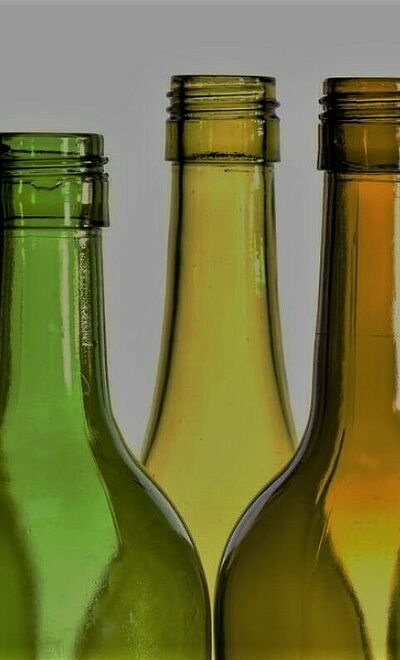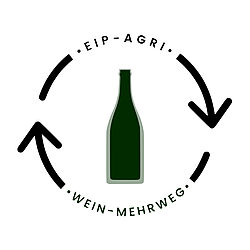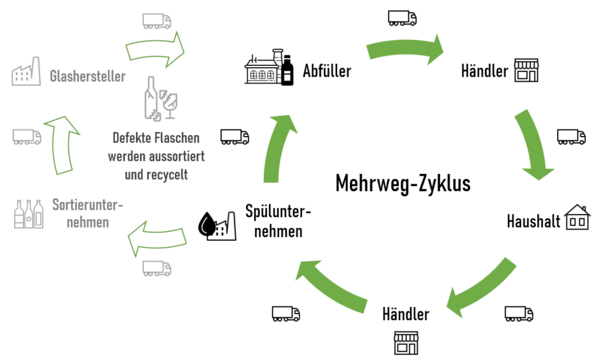Project goals
Background to the project
Why should the wine industrydeal with reusable bottles?
- Rising producer prices for glass
- Sustainability priorities of consumers
-CO2 footprint of wine -> The wine bottle is the reason for the highCO2 footprint
In the face of global sustainability efforts, the wine industry faces the challenge of developing innovative solutions to reduce its environmental footprint. In this effort, circular systems and reusable solutions are coming into the spotlight as promising tools to minimize resource consumption.
In the midst of the ongoing discussion about sustainable practices in the wine industry, the EIP-Agri project Wine Reusable is coming into focus:
In close cooperation with the Baden-Württemberg Cooperative Association (BWGV), the project aims to design and establish a supra-regional and practicable reusable system for 0.75L wine bottles. The targeted introduction of a reusable system is intended to promote the reuse of glass bottles and make a significant contribution to conserving resources and reducing the carbon footprint of wine production.
BACK TO THE FUTURE
Will the returnable wine bottle make a comeback?
Latest news
Competitions and surveys
Creative Design Bottle Contest for reusable wine
Reusable wine as a sustainability lever is attracting media interest despite many challenges. In particular, the variety of wine bottles on the German market is proving to be an obstacle to the efficient introduction of reusable systems, as the time-consuming sorting of countless bottle models hinders the process. Our aim is to proactively and virally promote reusable bottles as a solution.
To this end, we have come up with a competition for the "best reusable bottle". The concept is based on beauty contests and is therefore called the "Creative Design Bottle Contest". In a multi-stage process, experts, designers and creatives will design a "super bottle" with and for the industry. We are aiming for resilient results that will not only inspire the wine industry, but also consumers and encourage them to rethink. This competition should not only make a significant contribution to conserving resources and reducing the carbon footprint of wine production, but also be fun and inspiring.
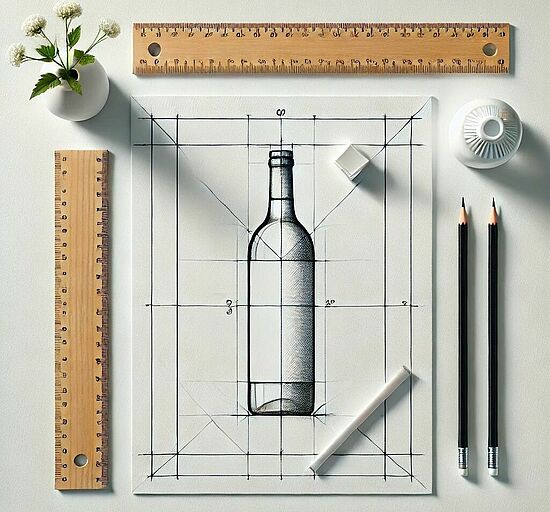
Creative minds wanted!
Are you a designer who has been working with wine for decades? Are you an engineer who works with product packaging on a daily basis? Are you an interested student with no experience of product development? No problem! Submit your design for a returnable wine bottle by November 22, 2024!
We are looking for creative, expressive designs for reusable glass wine bottles that can significantly reduce the carbon footprint of the wine industry in the long term. Feel free to design the bottle and develop your artistic vision as you wish. Base your design on existing bottle models or create a completely new design.
Values to be adhered to for the bottle:
➤ Nominal volume: 0.75 L
➤ Maximum diameter: 80 mm
➤ Maximum height: 330 mm
The values given are for guidance only and do not have to be indicated on the drawing.
Prizes
| Competition (first stream): 1st place: €500 2nd place: Voucher for a wine hike 3rd place: Wine set | Competition (second stream): 1st place: €500 2nd place: voucher for a wine hike 3rd place: wine set |
How to take part in the competition:
Use our registration form to easily upload your bottle design by November 22, 2024. After an online vote, the top 3 designs with the most votes will reach the final round. There they will be judged again by a jury of experts in the final in November/December and the winners will then be selected.
All information (procedure, prizes, expert jury, evaluation criteria, etc.) about our design competition can be found here: Creative Design Bottle Contest
To register and submit your design, please click here.
By participating, you agree to our privacy policy and the conditions of participation.

Participants wanted for eye tracking experiments
We are pleased to offer you the opportunity to take part in an eye-tracking experiment at the Wine Campus Neustadt. The experiment lasts around 15 minutes, offers exciting insights and is open to all interested parties.
Location: Wine Campus Neustadt
Period October - beginning of November
Contact & registration: nachhaltiger-weincampus☞ Please insert an @ at this point ☜hwg-lu☞ Please insert a period at this point ☜de
Prerequisite:
✔️ Be a wine drinker, but not active in the wine industry
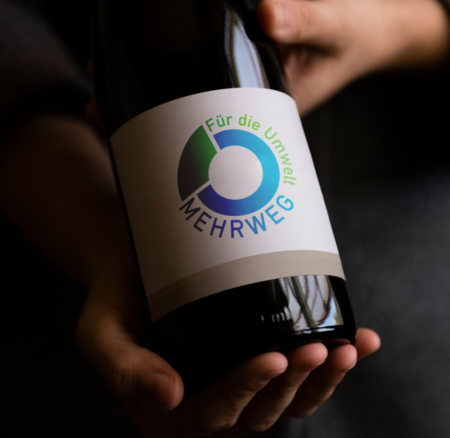
31 Project partners
The operational group
The operational group of the EIP-Agri project Wein-Mehrweg is made up of a total of 31 members. The participants include 19 renowned winegrowers' cooperatives, national beverage industry associations, several trading partners, glass manufacturers, rinsing centers and the Wine Campus Neustadt as a research partner. Targeted cooperation across regional boundaries has resulted in a comprehensive approach that serves as the basis for successful implementation.

Associations
- Baden-Württemberg Cooperative Association e.V.
- Association of the Fruit Juice Industry eV
- Württemberg Winegrowers' Association e.V.
- Badischer Weinbauverband e.V.
- Pro Mehrweg e.V.
Trading companies
- EDEKA Southwest
- Globus
➔ A total of 31 OPG members and an extended circle of interested parties
Cooperatives and companies involved - The practice
- Deutscher Mineralbrunnen eG
- A glass manufacturer
- A bottle trading cooperative
- A bottle washing company
- 19 winegrowers' and winegrowers' cooperatives
Research partners
Wine Campus Neustadt - Prof. Dr. Dominik Durner & Prof. Dr. Marc Dreßler
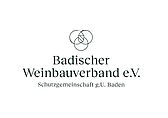
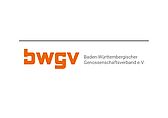
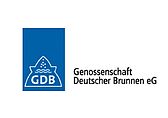
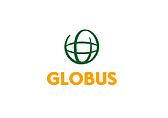
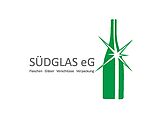
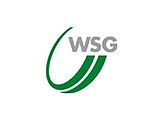
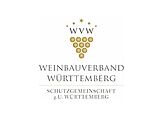
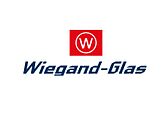
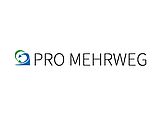
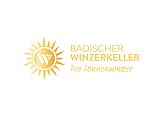
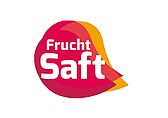
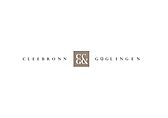
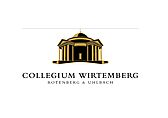
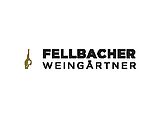
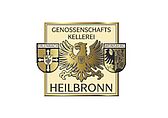
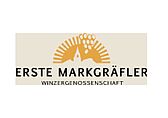
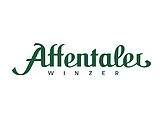
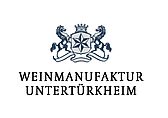
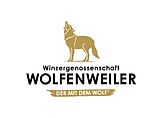
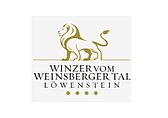
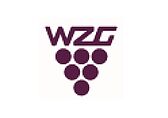
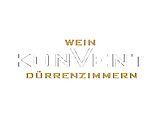
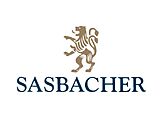
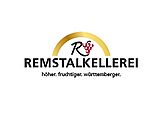
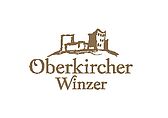
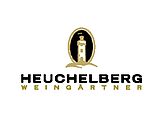
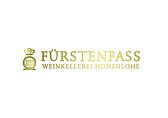
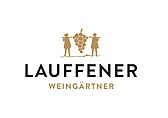
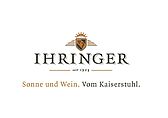
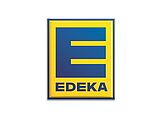
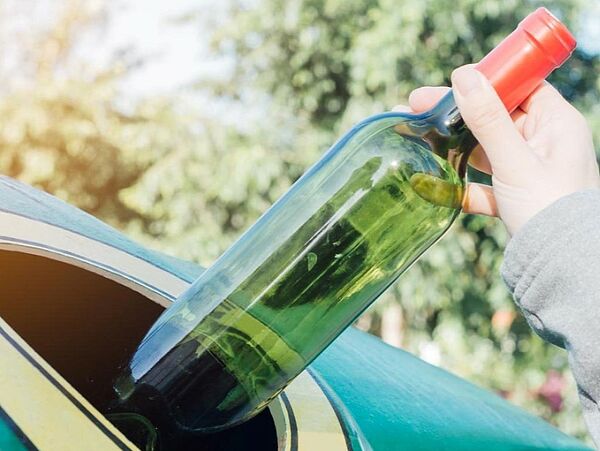
The value chain should become a cycle
Objective
The overarching goal is to develop innovative solutions for the complex challenges of the reusable initiative.
The project focuses on the creation of a well thought-out reusable system that not only offers ecological benefits, but is also closely interlinked with retail and consumer behavior. Together, we are not only striving for an ecologically sensible but also economically viable solution. The link along the value chain, in the form of experiments and tests with different conceptual ideas and implementation perspectives, forms a strong knowledge network that enables direct feedback for practice-oriented research.
Research work plan
- Development and formulation of technical specifications for wine bottles, labels and closures, including bottle carrier systems
- Which bottles are suitable for the reusable system from a technical and consumer perspective?
- Coordination of logistics processes with processes in the wine value chain
- Which reusable bottle carrier systems are required?
- Analysis of the distance and sustainability of the planned system
Aims of the initiative
- Development of a returnable system for 0.75L wine bottles
- Establishment of a knowledge hub for the entire industry
- A strong focus is placed on future viability and practicability
- Strong involvement of retailers and consumers (MaFo)
- Other new types of wine packaging (e.g. kegs) are included
- Demonstrable reduction in theCO2 footprint of a bottle of wine
- Promotion of reusable systems in the wine industry
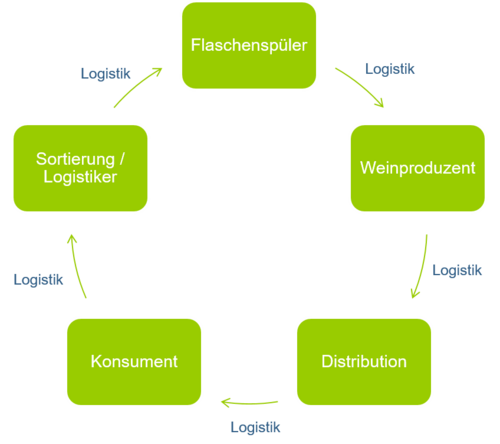
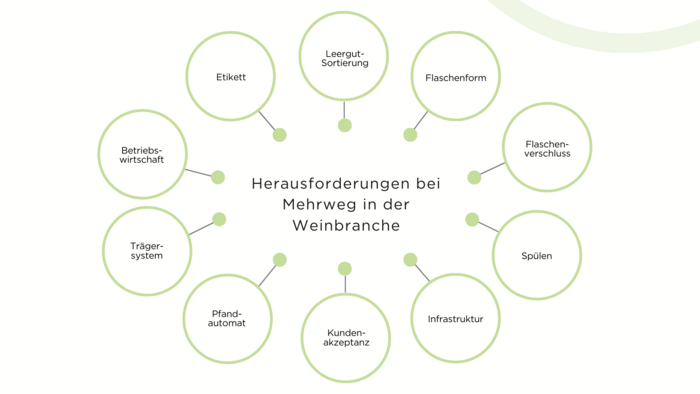
Establishment of a reusable system
Challenges
Wine production is confronted with challenges ranging from ecological to economic and social aspects. Practice shows that the introduction of reusable systems faces considerable implementation hurdles despite promising ecological advantages.
The introduction of a reusable system for wine bottles is a significant step towards greater sustainability and environmental protection in the wine industry. This change requires a carefully planned change management process to ensure that all stakeholders - from winemakers and distributors to end consumers - can make the transition successfully.
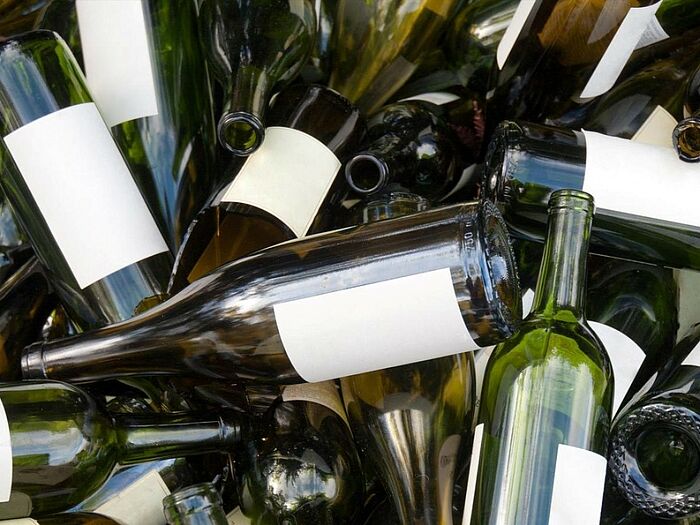
Project data
Project period
Subsidies
Publications
contact
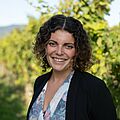
Katharina Kleiner
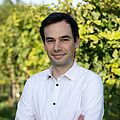
Julian Döbler

Jenny Tran

